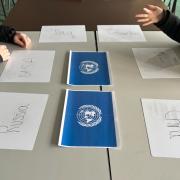
Last week marked an important one for humanity, with the discovery of the Covid-19 Vaccine. Since it started spreading across the world in March, it has had a devastating impact: causing mass unemployment and poverty. The statistics are shocking: despite the introduction of national lockdowns, 52,000 people in UK have lost their lives due to the pandemic. But now, after 8 months, there is finally light at the end of the tunnel. The discovery of the Covid-19 vaccine leads us to an important question: Is this the end of Coronavirus?
After months of researching and trialling, the Covid-19 vaccine has been found by 2 pharmaceutical giants working in collaboration: BioNtech and Pfizer. They claim that this vaccine would be able to prevent people from catching the virus as well as stopping the transmission of the virus. The results have been extremely promising with Pfizer claiming that the vaccine is 90% effective- an astonishing result for a first generation Vaccine. The UK have already bought 40 million doses and 10 million doses would be rolled out by Christmas
How does the vaccine work? The vaccine would work by injecting the person with a genetic code called a messenger RNA. This genetic code would give instructions for the vaccine to produce antigens which will fight the virus.
So, is it the end of Covid-19? Many people seem very confident that it is, with Dr. Ugur Sahin: a key figure in the development of the vaccine saying: “We could return to normal by next year”. However, there are some doubts about how effective the vaccine will be due to how new it is. There are also problems with logistics: many countries will not be able to afford the vaccine. Overall this vaccine is a great start, however there is still a long and gruelling road to recovery till Covid-19 is a thing of the past.



























